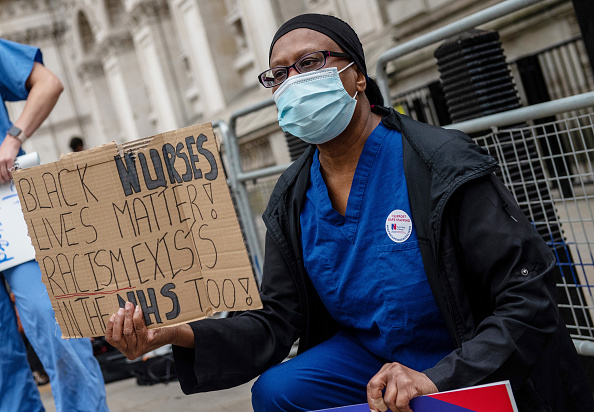
NHS ENGLAND in collaboration with the Nursing & Midwifery Council (NMC) and the NHS Confederation has designed a new anti-racism resource to support nurses, midwives, and nursing assistants by giving them guidance on what to do if they encounter racism.
Additionally, it encourages individuals in leadership positions to lead inclusively.
All nurses and midwives employed by the NHS who are registered with the Nursing and Midwifery Council are the target audience for the new resource.
The resource includes practical examples and tools to help nursing and midwifery professionals discuss, explore and challenge racism safely and effectively.
The resource also outlines the expected behaviours from NHS organisations and leaders, which include:
* The provision of training to support zero-tolerance policies
* Senior leaders act as proactive allies by taking the appropriate action
* The provision of safe spaces for conversations – such as robust staff networks and events.
* Organisations working with staff to educate and reform practice.
Joan Saddler OBE, director of partnerships and equality, and co-facilitator of the BME Leadership Network, NHS Confederation said: “NHS staff are under unacceptable pressures particularly following the impact of COVID-19. Measures supporting staff well-being have been developed for all staff, including specific support for workforce stress and mental health. This resource begins to tackle another area, enabling staff on the ground experiencing and witnessing racism to take action.
“By tackling the raft of documented and consistent staff experiences of racism, NHS leaders will also be supported to ensure robust procedures deliver their NHS commitment to a safe and respectful environment for all.”
Lord Victor Adebowale, chair of the NHS Confederation, said: “It is important to recognise that racism can occur in every setting and the impacts can be devastating. We all have a part to play in stamping it out, including across the NHS so that all staff, patients, and visitors feel they are treated with dignity and respect.”
Andrea Sutcliffe, the NMC chief executive, and registrar said: “As an organisation committed to promoting anti-racism, the NMC is determined to support the professionals on our register to challenge discrimination wherever they see it. We’re proud to have joined forces with NHS England and NHS Confederation to offer this new resource, which supports all nurses, midwives, and nursing associates working in the NHS to tackle racism. It is focused on the NHS, but I hope it will be useful for everyone wherever they are working in health and care.”
Data from the Workforce Race Equality Standard and NHS Staff Survey indicate that more needs to be done to prevent racism and prejudice.
Meanwhile, following a countrywide vote in favour of industrial action, the largest nurse strike over pay in NHS history may occur before Christmas. In the coming days, the Royal College of Nursing (RCN) will disclose the results of its poll.
Strikes, if they occur, would only affect non-emergency treatment; yet they might still cause disruption.
The RCN had requested a hike of five per cent over the current RPI(Retail Price Index) the inflation rate, which is almost 12 per cent, and no pay body in the UK has recommended this.
In England and Wales, nurses and other NHS employees have received an average pay raise of 4.75 per cent, with additional compensation going to the lowest paid.
A fixed rate of a little over £2,200, or slightly over eight per cent for a freshly licensed nurse, has replaced the earlier Scottish offer of five per cent to NHS employees. Nurses in Northern Ireland have not yet received a salary award.
The government’s determination on wage issues will also be put to the test as it deals with threats of strikes in the public sector in the face of the biggest inflation since the 1980s.